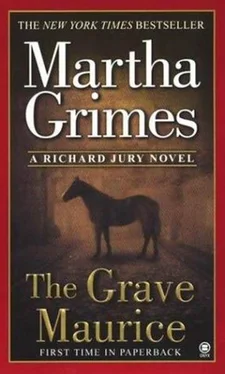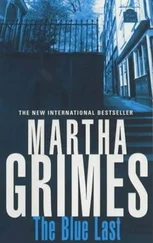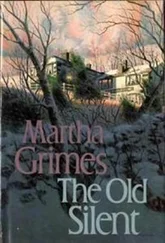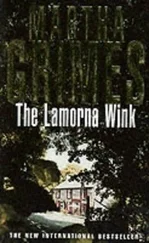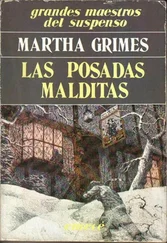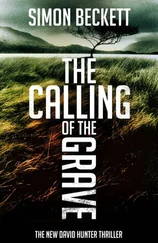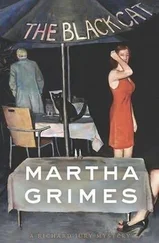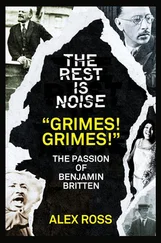It could be a great deal else. It could be Maurice trying to show that he really was Danny Ryder’s son. He’d been competing all of his life with the shadow of Dan Ryder. How could he not? Maurice was very smart: he knew the danger of jumping Hadrian’s walls after dark, if one wasn’t a good jumper.
She had liked her uncle, even despite his being such a deplorable father. She had liked him for his feeling for horses. It was strange to her how a man could be not much good in so many ways, ruinous to others, yet still retain a passion for one thing-in Dan Ryder’s case, horses. In that respect, they were alike. It made her uncomfortable to think they were alike in this way for that might imply they were in other ways, too. At times she was afraid that her passion for horses had drained her of feelings for people. But she did love people-her father, grandfather and Vernon. She really loved Vernon in ways she knew were hopeless for a seventeen-year-old girl. Ruefully, she hoped she’d never have to choose between Vern and a horse. She laughed. Don’t be ridiculous. Of course you’d choose Vern. And her other self said, Doesn’t that depend on the horse?
Nell laughed again, straightened, wondered how she could laugh with Maurice dead. She felt cold; she felt the blood drain from her face. Maurice. But she hadn’t cried. Tears sometimes came to her eyes, but didn’t fall. She wondered again if she was, after all, a cold person. When was the last time she’d cried over anything but the mares or flown into a rage? She couldn’t remember. Was it because of the last months at Valerie Hobbs’s place, where she’d schooled herself in repressing her feelings so that she could stay clearheaded? Or simply keep from shattering to bits? You’re so dramatic! But she had never really thought of herself as self-dramatizing.
In all of these ruminations her eyes traveled round the room-the books, the wall of photographs-Do I still look like my old self?-until her glance rested on the coatrack near the door. Silks.
She went nearly rigid. The green and silver silks were on a hanger. The stranger’s, the jockey’s, they must be. And then a shape came to her, burst into her consciousness like glass shards flying together, turned back to their recognizable shape. She felt as if she had in that moment turned into some other girl.
Nell whirled around and snatched the penknife from the desk. She flicked it open and moved to the rack and slashed the shirt, lacerating it again and again until it hung in rags. Then she dropped the knife on the floor and ran from the house to the stables.
In minutes she had Aqueduct saddled and was out of the stable yard and gone.
Diane had generously tossed Jury her cell phone, surprised that these weren’t routinely it issued to Scotland Yard detectives. Jury was using it as he and Melrose left the A45 for the A14, heading for Cambridge.
He snapped the cell phone closed. “I can’t get through. There’s something wrong with the damned thing.”
“What’s wrong,” said Melrose, easing the Bentley around an articulated lorry, “is probably that Diane forgot to pay up for more time. Doesn’t some voice tell you that?”
“I didn’t get a voice.”
Melrose entered a roundabout near Godmanchester. “Ryder will be there, not to worry.” He meant Roger Ryder. “With Maurice’s funeral coming up, he’d stay for Arthur’s sake.”
“Who is this creep ahead of us?” said Jury.
“Which creep? There are so many of them.”
“The one in what looks like one of those ice cream vans. You know, jingle, jingle, jingle, and going five miles per.”
It took them another hour to get to the turnoff that led to Cambridge, an hour filled with rather churlish observations from Jury about his fellow motorists; and okay okay okay from Melrose. Melrose tried to take Jury’s mind off the incompetency of British drivers (all of whom appeared to be driving to Cambridge this afternoon) by getting him to talk about the case, but Jury proved uncharacteristi-cally taciturn.
“You know, don’t you?”
“Know what?”
“Oh, stop being stupid. You know why what’s happened, happened.”
“Pass him” was Jury’s only comment, indicating the car ahead.
“I can’t. A car’s coming from the other direction. They do that, you know. This is a two-lane road and we’ve got hedgerows on either side and curves we can’t see around.”
Jury made a squiffy sound and stared out of the passenger window as if he’d happily roll up the hedgerow and toss it at the cows. There were several ruminating cows near the road.
“We’re nearly there, for heaven’s sake.”
No comment from his passenger.
“You’d be a total disaster at an AA meeting, you know that?” Melrose knew this comment, unrelated to anything at all in the present conversation, would pry a response from Jury.
“AA? What’s AA got to do with anything?”
“It doesn’t, for you. The thing is you’re supposed to share. ‘Thank you for your share’ is what they like to say.”
“That is so a thing I would not be caught dead saying.”
“Perhaps, but then you’re not an alcoholic.”
“A debatable point.”
“Anyway, I think ‘thank you for your share’ is rather warm and friendly.”
“Please don’t say it again.”
Melrose considered. “I’d say Long Piddleton is a really alcoholic place. I mean, there’s so little to do.”
The hedges gave way to dogwood and white birch trees and silver fern. The road widened.
“Does Vernon Rice have an alcoholics chat room on his Web site? I bet you’d always see ‘thank you for your share’ posted there.”
“The only share I want is ten percent of Microsoft.”
“Thank you for your share.” Melrose turned off onto the Ryder drive.
In the distance beyond the white fence horses grazed, one or two turning their heads to inspect the Bentley and its contents. The car spat up gravel as it stopped by the front door, which at the same time was opened by a haggard-looking Arthur Ryder.
“Saw the car. I remembered it.” He nodded toward Melrose and evinced no interest in his appearing here with Richard Jury. It was as if anything worth questioning had been nullified by the death of his grandson.
Jury apologized for intruding. “I wouldn’t if it wasn’t important.”
“No. Yes. Come in.”
Far from being annoyed by this unexpected visit from the two of them, Arthur Ryder seemed a little relieved to have something to focus on other than the upcoming funeral.
Standing by the large front window, Vernon Rice nodded to them and returned his gaze to the chilly scene outside.
Roger Ryder moved to shake Jury’s hand and ask him how he felt. “Is there much pain still?”
“No, not much,” Jury lied.
Roger knew it, too. He smiled. “You’re tiring yourself out; you should be relaxing-”
(A word Jury would be happy to shoot where it stood, along with “share.”)
“-but I think it very good of you to give so much time and effort to our family, Superintendent.”
“I’m dreadfully sorry for your loss. Maurice will be missed.”
“Awful, isn’t it?” said Arthur Ryder. “Nell come back, Maurice gone, as if we had to pay a price for her return. I feel as if it’s a kind of curse.” They had been drinking tea, and Arthur told them he could get some hot.
Jury shook his head, saying, “I can understand your feeling it’s a curse, but Maurice wasn’t a payment for Nell. If you think that way, you’ll find yourself wandering through mazes of pain and self-blame. Don’t go there.” He turned to Roger Ryder. “Dr. Ryder, it’s you I wanted to talk to. Could I have a word with you?”
Читать дальше
